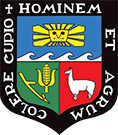[rev_slider alias=”slider-1″][/rev_slider]


Program Description
Designed for students with previous master’s level education in nutrition, the Ph.D. in Nutrition provides a combination of didactic learning and research experience. This program emphasizes foundational courses in biochemistry, physiology, and nutrition as well as a variety of opportunities for conducting high-quality laboratory and field research. Program faculty study a wide range of topics, using a combination of animal and human models to answer both applied and mechanistic questions. This program will prepare students to excel in research and to become leaders in academia, industry and government.
Earning a Ph.D. in Nutrition
As Ph.D. candidate, you will be required to fulfill a minimum of six semesters of full-time study with courses in the field of nutrition and two additional graduate fields. You must pass the Admission to Candidacy examination within six semesters of matriculation and successfully defend your dissertation based on original research.
Your studies will be guided by a Special Committee that will include your research Chair and representatives of the Nutrition Ph.D. program, plus an appointed external representative of the field of nutrition. The committee will provide guidance in your course selections, determine your admission to doctoral candidacy and evaluate your dissertation.
The Student Experience
Modern nutrition is a multidisciplinary, interdisciplinary, integrative science, and the Nutrition graduate program has been developed to meet this diversity in approach and objective. It is the program’s goal to provide graduate students interested in nutrition with an opportunity to obtain specialized training in a specific research area and also to obtain a general background in the science and practice of nutrition. The program is sufficiently flexible to allow students with a wide variety of undergraduate degrees to meet the background prerequisites. The program draws on the strengths of faculty in a number of the university’s colleges and academic departments to enhance the instructional and research experience.
Learn Through your Research
The training objectives of the Nutrition graduate program are to provide students with an understanding of basic nutritional principles as they apply to humans, animals, and molecular models, to provide them with current knowledge in each area of emphasis, to make them aware of the integrative, multidisciplinary and interdisciplinary nature of nutrition research, and to direct them toward a successful career through the thesis and publications..
Throughout their graduate career, Nutrition students partner with a faculty mentor for in-depth research and career guidance. New PhD students explore different labs and research teams during their first semester to find the best research and mentorship fit.
Build Community and Networks
The Nutrition graduate program offers opportunities to work with over 30 faculty members from different departments at National Agrarian University – La Molina. The graduate faculty have well-developed, competitively-funded research programs and have been nationally recognized for their activities. They are active in national and international nutrition activities and participate in numerous workshops and on advisory committees.
Network within your field(s) by attending international and national conferences and scientific meetings with professional development funds provided to accepted students.
Addressed Issues
By earning a Ph.D. in Nutrition from La Molina, you will distinguish yourself as one of the true leaders in the field of nutrition.
Focusing on leadership, nutrition research, interdisciplinary training, and marked by the integration of resources and expertise across departments and colleges, the Ph.D. in Nutrition strives to address extremely complex and far-reaching issues that include:
• Enhancing knowledge of requirements for nutrients necessary for optimal growth and well-being, including the interactions among nutrients, the environment, and disease.
• Advancing methods for assessing nutrient intake and nutritional status.
• Determining the impact of food, phytochemical, and nutrient intake, as well as dietary patterns on health promotion and disease prevention.
• Promoting knowledge of factors affecting food preferences, dietary intake patterns, and health habits, as well as developing various intervention strategies and evaluating their nutritional impact at the individual and population level.
• Developing techniques and behavioral strategies to guide consumers in selecting health-promoting foods and nutritionally adequate diets.
• Expanding knowledge of the mechanisms of metabolic regulation in humans and other animals, including cellular, molecular, and physiological aspects.
• Training the next generation of scientists and practitioners in malnutrition prevention.
